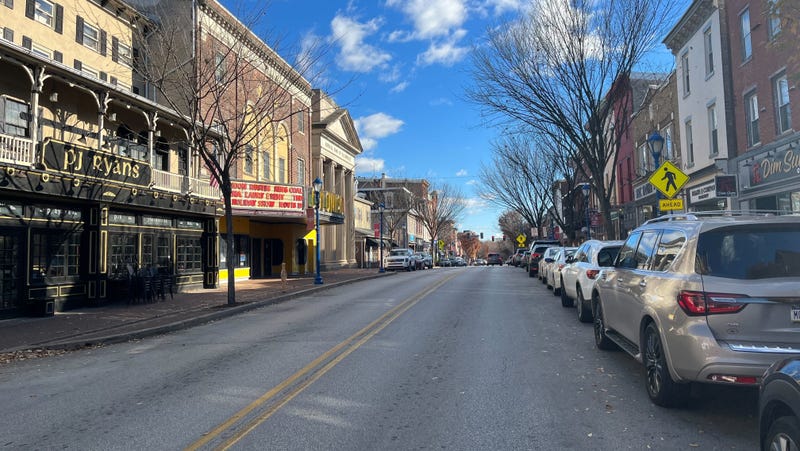
All this week, KYW Newsradio has stories of post-pandemic recovery with a series called "The State of Downtown." Listen on Nov. 16 at 7 p.m. for "Audacy Conversations: The State of Downtown."
PHOENIXVILLE, Pa. (KYW Newsradio) — Once a bustling steel town, Phoenixville’s main drag on Bridge Street became a dark, crime-ridden corridor. But decades of teamwork between business leaders and borough management have made Phoenixville’s downtown a destination, lined with upscale apartments, restaurants, and unique shops and retail.
Phoenixville leaders say the downtown was decimated after the Phoenix Steel Company closed in 1987.
“We lost retail. We lost restaurants,” said Jessica Capistrant, president and CEO of the Phoenixville Regional Chamber of Commerce. “The world changed and, at that time, we just really did not.”
“Sadly, like all communities [where] these things occur, I call it the gutter parade,” remarked Phoenixville Borough Manager Jean Krack. “It's the prostitution, it's the drugs.”
But Krack and Capistrant say things began to change in the late ‘90s, thanks to a combination of events, including a program administered by Chester County aimed at improving urban infrastructure.
Krack says in 2004, his predecessors in Phoenixville began to leverage that money to start to clean up Bridge Street.
“They began, almost literally, taking down all of the trees to shine light on the downtown,” Krack recalled. “They took down the trees, but then they replaced the trees with a better kind of tree, new lighting, appurtenances such as trash cans, and benches, and brick sidewalks and the like.”
“Phoenixville Area Economic Development Corporation saved the Colonial Theatre building,” said Capistrant. “It was the big cornerstone of the community by the time I arrived. They were getting real concerts. Black Lab Bistro took a chance opening across the street, and that was what Phoenixville had going on for quite a while.”
A regular First Friday event followed, featuring live music and craft vendors, and as Krack recalls, more events followed. Blobfest started in 1999 to commemorate the 1958 horror movie shot in Phoenixville and Downingtown. The festival culminates in a reenactment of the movie’s most famous scene, where panicked moviegoers pour out of the Colonial Theatre.
The annual Firebird Festival followed in 2004, featuring the ceremonial burning of a wooden phoenix, as a celebration of the mythical bird that gave the town its name. “The people that were coming here for those events began to look at the community differently,” said Krack.
“It created excitement and curiosity,” added Capistrant, “and then we saw more of a boost in people taking a chance on retail and choosing Phoenixville for that.”
Now, Krack says, downtown Phoenixville houses a mix of old businesses that have remained for years, and new businesses coming in. “The combination of that is what makes it work,” he said.
“As people discovered it on their own, it was sort of like this natural explosion, and then we kind of became everybody's downtown,” said Capistrant. “We've had these people in our community that have just always been wonderful salespeople and cheerleaders for Phoenixville, and that's really what it took at that time. Because at the end of the day, everybody was just taking a chance.”
Much like its namesake, Krack says Phoenixville’s downtown rose from the ashes of its initial collapse. The borough manager has advice for other municipalities.
“Reach out and understand what your businesses want, what your political leadership wants, and understand what your residents want. You’ve got to work together, one can't be overpowering the other,” he suggested.
“I think Phoenixville did that. It’s probably the greatest half-mile roadway that I can think of.”

